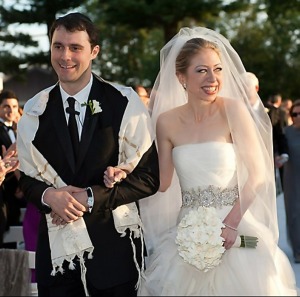 I, like most estate-planning attorneys come across clients who want to attach all sorts of conditions on gifts they make to descendants and other beneficiaries. And most estate-planning lawyers know that conditions creating restraints against marriage, religion and family relationships, etc. are often void as against public policy.
I, like most estate-planning attorneys come across clients who want to attach all sorts of conditions on gifts they make to descendants and other beneficiaries. And most estate-planning lawyers know that conditions creating restraints against marriage, religion and family relationships, etc. are often void as against public policy.
But we shouldn’t be so sure.
The degree to which a testator may condition a gift on the behavior of a beneficiary has long been litigated with inconsistent results. Just look at In re Estate of Max Feinberg, where a unanimous Illinois Supreme Court has held that:
A clause from a testamentary trust providing that its assets are to be distributed to the testator’s grandchildren, except for any grandchild who might marry a non-Jew or whose non-Jewish spouse did not convert within one year of marriage, does not violate public policy when employed as a condition precedent of a gift of the trust’s assets.
Max Feinberg, a wealthy Chicago dentist who died in 1986, created a trust in which he declared that any descendant of his — that is, any descendant other than his children — “who marries outside the Jewish faith (unless the spouse of such descendant has converted or converts within one year of the marriage to the Jewish faith) shall be deemed to be deceased for all purposes of this instrument as of the date of such marriage.”
The parties in Feinberg refer to this provision as “the Jewish clause.”
Max’s wife was the primary beneficiary of the trust and she died in 2003. Max’s daughter was administer of the trust and two of Max’s grandchildren are claiming that Max’s daughter is breaching her trust duties. The standing of these grandchildren, however, is in doubt because they both have married gentiles and thus would not be beneficiaries under Max’s Will if the so called “Jewish clause” is enforceable. Indeed this fight became quite nasty.
One of the grandchildren, Michele Trull, who had married a non-Jew, sued the co-executors of the estates. Those executors happened to be Michele’s father, her aunt and uncle. Michele claimed that the three had engaged in a conspiracy to evade estate taxes and had misappropriated millions of dollars from her grandparents’ estates. Apparently the amounts left in the grandchildren’s shares exceeded the Feinberg’s generation skipping tax exemption. So the executors sought to enforce the Jewish clause to pull amounts back to the children’s generation, to which the executor’s belonged.
The executors of the estate sought to have Michele’s case dismissed because the Jewish clause deemed Michele to have predeceased her grandparents and therefore she had no interest in the estate.
An Illinois circuit court held that this Jewish clause was invalid and an appellate court affirmed, both finding it unenforceable as contrary to public policy.Generally speaking, courts will find such constraints against public policy if they either encourage divorce or discourage marriage itself.
But on a three-judge panel of Illinois’ First District Appellate Court, one of the justices vehemently disagreed. Justice Alan J. Greiman dissented passionately, stating: “Max and Erla had a dream. . . to preserve their 4,000 year old heritage.”
The Illinois Supreme Court agreed to hear the case and reversed the lower and appellate court’s rulings, holding in a unanimous ruling that the Jewish clause was valid and enforceable.
“Although those plans might be offensive to individual family members or to outside observers, Max and Erla were free to distribute their bounty as they saw fit and to favor grandchildren whose life choices they approved,” Illinois Justice Rita Garman wrote.
The appellate court’s concern as to whether the clause “encouraged heirs to divorce and remarry to claim an inheritance” was rejected by the Illinois Supreme Court:
“Max and Erla did not impose a condition intended to control future decisions of their grandchildren regarding marriage or the practice of Judaism; rather, she made a bequest to reward, at the time of her death, those grandchildren whose lives most closely embraced the values she and Max cherished.”
This case is one of the ultimate examples of using estate planning to “reach out from the grave.”





